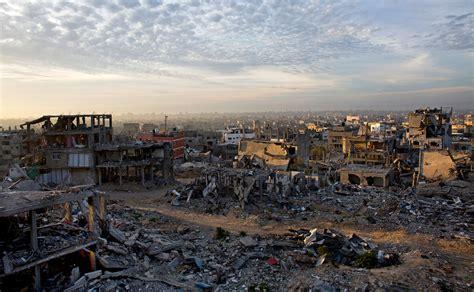
U.S. prepares for crucial week as Gaza deal faces “now-or-never” moment
A train of top Biden administration officials is planning to head to the Middle East for a dramatic week of high-stakes diplomacy to try to prevent war in the region and secure a hostage and ceasefire deal in Gaza.
Why it matters:
The results of the coming week will indicate whether the region is going to sink even deeper into crisis and a widening perpetual war, — or if, for the first time since Oct. 7, there will be a significant change of course. The outcome could shape President Biden’s legacy.
The deal would secure the release of the 115 hostages being held by Hamas in exchange for a temporary ceasefire in Gaza, where nearly 39,800 Palestinians have been killed, according to the local health ministry.
Driving the news:
U.S., Egyptian and Qatari mediators and officials are spending the next few days trying to close the gaps between Israel and Hamas ahead of a final round of negotiations between the parties, set for Aug. 15.
Israeli officials said the talks on Thursday are “a now-or-never” moment for a deal.
At the same time, the U.S. and its allies are pressing Iran and Hezbollah not to retaliate against Israel for the assassinations of Hamas’ political leader in Tehran and a top Hezbollah commander in Beirut.
The U.S., Israel, the UK, France and several Arab countries are also finalizing their preparations to defend Israel from these potential attacks if diplomacy fails. CENTCOM commander Gen. Michael Kurilla was in Israel on Thursday for talks to coordinate a defense — his second visit in less than a week.
The U.S. and Israel still don’t have a clear idea about when such an attack could happen. But the general assessment is that Hezbollah is likely to attack first, possibly this weekend, two U.S. officials and one Israeli official said.
The latest:
On Friday night, the Israel Defense Forces conducted an airstrike on a mosque at the Daraj neighborhood in Gaza. The mosque is in the same compound as a school.
Hamas claimed the strike targeted the school and killed 100 Palestinians.
The IDF denied that and said it attacked the mosque, claiming it was used by Hamas as a command center. An IDF official said the IDF assessment is about three dozen Palestinians were killed in the strike, most of them militants.
The IDF said it used three small precision missiles that don’t have the capacity to cause the damage and casualties Hamas claims happened.
Behind the scenes:
White House national security adviser Jake Sullivan held a Zoom meeting Friday with the families of eight U.S. hostages held in Gaza, and briefed them on the decisive round of negotiations that will take place on Thursday in either Cairo or Doha, according to two sources with direct knowledge of the meeting.
Sullivan told the families Biden and his team are pushing for the deal in order to bring the hostages home and reach a ceasefire in Gaza, but also because they think a deal can prevent regional war, the sources said.
White House spokesperson John Kirby told reporters on Friday it is urgent that a deal be reached because “every day that passes, the lives of the hostages are in greater danger and the suffering in Gaza continues.”
Kirby said both Israel and Hamas have changed details in the proposed deal and added demands: “It will demand compromises and leadership by both sides.”
State of play:
CIA director Bill Burns is expected to lead the U.S. team in the negotiations and travel to the region next week.
Biden’s top Middle East adviser, Brett McGurk, is expected to travel to Cairo early next week for talks with Egyptian and Israeli officials, in an effort to finalize a series of security arrangements on the Egypt-Gaza border, U.S. officials said.
The arrangements focus on a joint system for preventing weapon smuggling from Egypt to Gaza, and an agreement on the reopening of the Rafah crossing, Israeli and U.S. officials said.
Getting these arrangements in place is critical for the hostage and ceasefire deal. But McGurk’s trip is contingent on whether Hezbollah and Iran attack Israel and if this leads to a wider escalation, U.S. officials said.
Secretary of State Tony Blinken told Israeli Minister of Defense Yoav Gallant on Friday that he is considering traveling to the region next week to join the efforts to reach a deal and prevent escalation, U.S. and Israeli officials said.
But Blinken’s trip also depends on the situation in the region over the next few days. If there is a major escalation, he is less likely to go.
What they’re saying:
Iran signaled Friday that the renewed efforts to reach a ceasefire in Gaza factor into any attack they might be considering carrying out against Israel.
“Our priority is to establish a lasting ceasefire in Gaza. Any agreement accepted by Hamas will also be recognized by us,” Iran’s mission to the UN said in a statement.
The Iranian mission to the UN said Iran has a right to self-defense against Israel after the assassination of Hamas political leader Ismail Haniyeh in Tehran.
“However, we hope that our response will be timed and conducted in a manner not to the detriment of the potential ceasefire,” the statement said.
Source » axios.com





